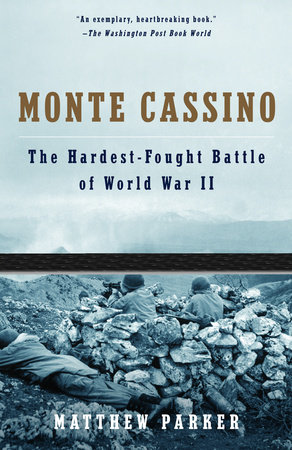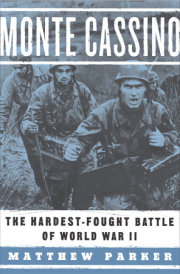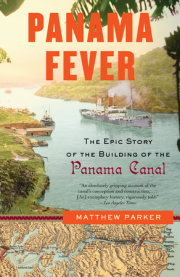1
The Casablanca Conference and the Invasion of Sicily
On 14 January 1943, Roosevelt and Churchill met in the newly liberated city of Casablanca in Morocco. In the East, the ring had closed around Stalingrad, and the Western Allied leaders now debated their next steps. With Churchill in the lavish surroundings of the Villa Mirador on the outskirts of the city was Gen. Sir Harold Alexander, later to be overall Allied commander at Cassino, whose "easy, smiling grace," Churchill wrote, "won all hearts." Harold Macmillan, then the British resident minister in North Africa, wrote of Churchill, "I have never seen him in finer form. He ate and drank enormously all the time, settled huge problems . . ." Officially, all were in agreement: With the campaign in Tunisia taking longer than expected, the cross-Channel invasion would be delayed until 1944. Once German resistance in North Africa had been ended, an invasion of Sicily would follow. If successful, this would give the Allies control of the Mediterranean, reopen the Gibraltar-Suez shipping lane and, they hoped, knock Italy out of the war.
Behind the outward shows of unity, however, lurked serious disagreements about strategy. In fact, the Casablanca Conference saw the stormiest negotiations ever to occur between the Western Allies. The Americans, observing the military dictum that an attacker should go the shortest route to his objective with the greatest strength he can muster, were deeply suspicious of further delays to the invasion of France. The staunchest holder of this line was Gen. George Marshall, the US Army chief of staff and Roosevelt's right-hand man as far as running the war was concerned. In his view the Mediterranean was a sideshow and an unnecessary drain on manpower and resources that could be better employed by returning immediately to England and then heading via the shortest route to Berlin. Churchill though, like all the British, haunted by the ghosts of the Western Front a generation earlier, was determined to delay the battle in northern France until success was far more assured. He didn't think that moment had come, and also had other motives for pushing forward in the Mediterranean. Traditionally a British concern because of the route to India, Churchill was also intent on "setting the Balkans alight"--exploiting the resistance to Nazi occupation that had already tied down vital German divisions and aiming to cut supplies of oil and other products essential to Germany's war machine. He was even far-sighted enough to wish to get Western Allied soldiers into Central Europe and especially Greece before the Red Army arrived.
Exasperated by British reluctance to proceed full-steam-ahead with plans for the cross-Channel invasion, the Americans were suspicious that Churchill's Mediterranean ambitions were motivated by imperial interests. There had been tension between Britain and America between the wars, including fierce exchanges over Britain's economic policy of Imperial Preference, which damaged US trade, and the American leadership could be absolutely sure of its people's deeply held anticolonialism. For Churchill, though, the empire was not up for discussion.
But at Casablanca the British, much to their surprise, got their way, and after ten days of heated negotiation a compromise was reached that prepared the invasion of Sicily. This, as will be seen, led almost inadvertently to the major struggle in Italy, and the Americans retained the impression that they had been duped, or "led down the garden path" as far as Southern Europe was concerned.
The ramifications of the Casablanca Conference were to affect the whole of the Italian campaign. To a great extent, at the highest level the Americans were unwilling participants in Churchill's "Mediterranean adventure." This made the southern theater a low priority for supplies and manpower, and also fed the distrust and dislike between the two principal allies, which was to reach its grim conclusion at Monte Cassino.
The road that leads to the climactic battles south of Rome in early 1944 starts with the decision taken nearly two years earlier in July 1942 to commit sizable American and British resources to North Africa. It had been agreed that there were not enough specialized landing craft for a cross-Channel invasion that year. There were also insufficient US forces already trained and shipped to Europe. Instead of letting what forces there were stagnate, it was thought best to use them to clear North Africa and thus do at least something on land to help the hard-pressed Soviets. President Roosevelt was determined that there should be American troops fighting the Germans somewhere as soon as possible. So in November 1942, against the wishes of the US military leaders, the president gave the go-ahead for Operation Torch; landings by American and British troops along the northwest coast of Africa. General Sir Bernard Montgomery's 8th Army, following its victory at El Alamein the previous month, attacked from the east.
The deep misgivings of the British about the unreadiness of the Allied forces for an attack on the well-defended northern French coast proved justified when in December 1942 the 8th Army was checked by the outnumbered Afrika Korps. In early February 1943, Rommel, briefly back in charge of the German forces in Africa, counterattacked American units near the Kasserine Pass in Tunisia. Initially the attack was held, but soon rumors began to sweep through the American ranks, and some units started retreating without having been given the order to do so. Exhausted and demoralized, and weak from days of fighting in the mountains without water, it was for many of the American soldiers their first taste of being dive-bombed and mortared. The result was a panic-stricken retreat that saw the Germans push back their attackers for over fifty miles. For the British, it was upsetting confirmation of their suspicions about the fighting ability of their ally. General Alexander, then second-in-command in the theater, wrote to Gen. Sir Alan Brooke, chief of the Imperial General Staff and effectively Britain's most senior soldier, calling the GIs "soft, green and quite untrained . . . is it surprising they lack the will to fight? . . . If this handful of divisions here are their best, the value of the rest may be imagined." The breakthrough at Kasserine was not exploited, but German reinforcements continued to arrive in Tunisia.
This move was evidence of a new German confidence in the early spring of 1943. To the dismay of the Red Army, the Wehrmacht had made a startling recovery after the disaster of Stalingrad the previous winter. In March 1943 the Soviets were driven back in places by a hundred miles when the Germans counterattacked around Kharkov in the Ukraine. In addition to this success, new weapons were coming through, including Tiger heavy tanks and Panther heavy-medium tanks. A massive manpower mobilization using slave labor had freed thousands of Germans for military service, and the Wehrmacht was now close to its size of two years earlier in spite of the enormous losses on the Eastern Front. Germany's increasingly unwilling allies--Italy, Finland, Hungary, and Romania--had been kept in the war, and another great offensive was planned for May around Kursk. Submarine production was up and it was hoped that offensives against the West at sea and the East on land would see Germany through until the unlikely alliance between the United States/Britain and the Soviet Union fell apart.
Furthermore, even relations between the United States and Britain were strained. After the Casablanca Conference and the setback in the Kasserine Pass, the Americans persisted in their suspicions that they had been hoodwinked into an expensive sideshow, and the British remained fearful that their ally would pull the plug on the Mediterranean theater, or, even worse, go back on the Germany First policy and transfer the bulk of their forces to fight Japan. Events on the ground had also led to distrust on one side matched by resentment on the other. President Roosevelt himself complained that the British had relegated American units to supporting roles, unwilling to trust them with anything else. In fact, the performance of the American II Corps in Africa improved markedly as the soldiers and commanders gained experience and received training from British troops. As Gen. Omar Bradley, II Corps' commander, commented after the war, Tunisia was an important testing ground. "In Africa," he wrote, "we learned to crawl, to walk--then run." By 3 March, the ground lost in Rommel's February counterattack had been recaptured, and at the end of the month General Patton's American divisions met up with Montgomery's 8th Army, which had at last broken through the German defensive lines in southern Tunisia. Alexander then reorganized the Allied armies and ordered a general offensive to start on 4 May. By then German supply lines to their army in Tunisia were under constant attack, and it was decided in Berlin to abandon the Afrika Korps, now commanded by Gen. Jurgen von Arnim. Three days later Bizerte and Tunis were captured, and on 12 May a message was intercepted by the Allies from von Arnim: "We have fired our last cartridge. We are closing down for ever." By the next day, all Axis forces in North Africa had surrendered. In all, some 130,000 German and 120,000 Italian prisoners were taken. Notes made by an Allied cameraman recording the capitulation maintain that the lines of prisoners stretched for twenty-two kilometers. By any standards, it was a spectacular victory for the Allies.
The front line was now the Sicilian Channel, and, as agreed at Casablanca, preparations started for an assault on the island. There was considerable nervousness about what was to be the Allies' first major amphibious landing on an enemy-held coast, and Britain's first return to Europe since its ignominious expulsion from Greece and Crete in 1941. Unlike the North African landings, when the invaders had faced Vichy French troops, this time they would be up against German divisions; and, also in contrast to North Africa, they did not possess a network of agents and informers to provide intelligence information.
As the Tunisian campaign was nearing its conclusion, the Allied leaders met in Washington for the Trident Conference. Again, the arguments were dominated by the question of priorities, with the Americans still deeply suspicious of the "distraction" of the Mediterranean theater and the British, to General Marshall's continuing frustration, doing their utmost to delay the cross-Channel invasion. Repeatedly throughout 1943, Churchill would return to his worries about this operation, fearing that the Germans' excellent transport links to northern France would enable them to assemble "an overwhelming force against us and to inflict on us a greater military disaster than Dunkirk. Such a disaster would result in the resuscitation of Hitler and the Nazi regime." Already desperately short of manpower, the British, having been driven off the continent three times already--from Norway, France, and Greece--simply could not afford another such loss. Instead, and in keeping with Britain's traditional role as a maritime power, the prime minister still pushed for opportunistic attacks around the periphery, what he called the "soft underbelly" of Europe: the Balkans, the Dodecanese, and Italy. At the conference Brooke, Marshall's opposite number in the British high command, argued in favor of an invasion of Italy, pointing out that it would be much more difficult than northern France for the Germans to reinforce. To knock Germany's principal ally out of the war, suggested Churchill, would bring many benefits: as well as being a huge boost to opponents and unwilling allies of Germany everywhere, it would force the Germans to take over the garrison duties of the Italian army in the Balkans and the Aegean, and the British Mediterranean Fleet would be free to sail against the Japanese. More than anything, he insisted, it would mean that British and American armies remained in contact with the enemy, reminding the conference that the Russians were now facing 185 German divisions in the East.
There were disagreements, too, among the commanders of the various service arms, both between and within the two Allied camps. The US Army chief of staff General Marshall, together with the air commanders of both sides, wanted Mediterranean operations scaled down in favor of the cross-Channel invasion; British sea and land commanders wanted to concentrate on knocking Italy out of the war.
The outcome was compromise and indecision. Eisenhower's staff was told to prepare plans for invasions of Sardinia and Corsica as well as of southern Italy, but the Mediterranean force was to lose most of its assault shipping and seven experienced divisions by November 1943, to return to England for the cross-Channel invasion. Then called Roundup, this was set for May 1944. So the question of the next step after Sicily--should the operation be a success--was left unresolved at the highest strategic level. Eisenhower himself felt that the resources available for any operation post-Sicily were "very slender indeed." It was an inauspicious start, and it would be events in Rome, rather than a clear and united "grand plan," that would precipitate the Italian campaign to come.
As the invasion fleet of nearly 2,600 Allied vessels left Africa for Sicily, neither side at the talks in Washington was fully satisfied. Marshall, who had been against even the Africa offensive as a dispersion of effort, predicted that the outcome would be that neither the Mediterranean nor the forthcoming cross-Channel invasion would be properly equipped. Brooke, writing in his diary on 24 July 1943, despaired that the American general could be so blind: "Marshall absolutely fails to realize what strategic treasures lie at our feet in the Mediterranean, and always hankers after cross Channel operations. He admits that our object must be to eliminate Italy and yet is always afraid of facing the consequences of doing so. He cannot see beyond the tip of his nose and is maddening."
After successful bombing attacks had destroyed the Italian and seriously weakened the German air forces in Sicily, the landings on 10 July went better than anyone had dared expect. There were counterattacks on one of the American beaches, but by 12 July both Allied armies were marching inland. Not so the airborne landings, which fell foul of high winds and sustained "friendly fire" from Allied ships and suffered very heavy losses. Nevertheless, Syracuse and its nearby airfields were captured after just two days, and a rapid advance was started.
Although the two German divisions fought hard from the outset, the loss of so many men and so much material in Tunisia had seriously compromised the Italian defenders of Sicily. They were chronically short of transport for their nine weak divisions, and morale among the fighting men was in freefall. The Italians had had enough. When Patton's troops entered Palermo on 21 July, they were greeted by its inhabitants not as enemies but as liberators, an ominous sign for Mussolini and Italy's Fascist leadership.
Presented with this early progress and the evidence that Italy's collapse might be imminent, the Allied planners began to add detail to their outline for an invasion of the mainland. Five days before the Sicily invasion the Germans had launched their Kursk offensive against a huge bulge in the Soviet line, using nearly three-quarters of their available strength on the Eastern Front. There were very real concerns that Russia would be knocked out of the war and might make a separate peace with Germany--it was known that there had been contacts between the Soviet Union and Germany through Sweden.
Copyright © 2004 by Matthew Parker. All rights reserved. No part of this excerpt may be reproduced or reprinted without permission in writing from the publisher.









